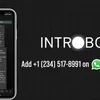Using AI and chatbots, this startup is helping D2C brands build a compelling buying experience
Gurgaon-based startup Limechat is empowering D2C brands with deeply integrated solutions for better customer engagement on the channel of their choice — WhatsApp, Facebook Messenger, Instagram, and more.
Businesses these days are seeking personalised ways of engaging with their customers and AI-powered chatbots, with heightened predictive capability, are becoming integral to consumer engagement.
At the same time, more and more customers are starting to prefer buying through chat mediums compared to websites and apps because of a personalised store-like experience coupled with faster response times and round the clock customer support.
In fact, Grand View Research reports that the global chatbot market is set to reach a staggering $123 billion by 2025, with an annual growth rate of 24.3 percent.
Tapping into this lucrative market with a focus on D2C brands are IIT alumni Aniket Bajpai and Nikhil Gupta.
The duo’s AI-based chatbot is helping brands improve their website conversions by leveraging chat mediums like WhatsApp, Facebook Messenger, Instagram, etc.

A 'human-like' AI experience
Second-time entrepreneurs, Aniket and Nikhil ran another startup together, Konscience, which was in the social media analytics space.
The founders launched LimeChat amid the first wave of the coronavirus outbreak in March 2020. The Gurgaon-based startup’s AI-based tech and tech stack are all built in-house.
“Before we started building, we talked to more than 100 global D2C brands to figure out their pain points. Our product was developed after months of extensive experimentation and feedback from several large D2C brands,” says Nikhil Gupta, Co-founder of LimeChat.

A side-by-side comparison with Level 2 AI (Image Source: LimeChat)
Claims to provide a human-like shopping experience on chat mediums, Nikhil says, “This is because of our first-of-its-kind Level 3 AI chatbot technology, which can identify language, sentiment, and intent to deliver personalised and natural conversational experiences to customers."
Most chatbots can only take in fixed predefined responses and are unable to answer questions that have not already been programmed.
The co-founder explains that the LimeChat bot can take in free-flowing text answers, one-word responses, spelling mistakes, etc., and still understand what a customer is trying to convey to provide the most relevant information.
The sales chatbot can provide a holistic buying experience on a website chat, WhatsApp, and Facebook Messenger.
Nikhil adds that LimeChat’s Level 3 bot can give a 53 percent higher engagement rate than a Level 2 bot.
“We have launched several other offerings, such as remarketing campaigns on WhatsApp, customer support automation, granular analytics and an agent dashboard. To provide an end-to-end seamless experience to our customers, we have deep integrations across CRMs, store management platforms, payments networks, and logistics platforms,” he adds.
How it works
LimeChat’s bot starts by engaging the users when they visit a client’s website to capture the buying intent.
Thereafter, it asks focused questions on the customer preferences to showcase the best products thereby giving a hyper-personalised shopping experience and reducing the time and effort required by the customer to research and make the decision.
“Typically, users then have a few queries about the product which are answered in real time with the right context and background. As a result of multiple integrations with Shopify, payment platforms etc, an automatic checkout page is created with all the relevant information thereby making the entire process seamless and reducing the drop offs,” explains Nikhil.
Subsequently, as the bot has all the information about the buying history, it automates all the post-buying support such as order tracking, returns, complaints etc.
A thriving market
“Since the first wave of COVID-19, online shopping on chat has experienced a huge surge along with a proliferation of online ecommerce brands. That combined with the opening up of the WhatsApp API and advancements in NLP made it the perfect time for us to build LimeChat,” claims Nikhil.
LimeChat provides a managed SaaS model to its clients where each brand is given an account manager who interacts with them on a regular basis.
The startup did not disclose its pricing range. The co-founder adds that the 30-member team is also experimenting with other revenue models.
“There are 50k+ medium and large D2C brands in the world, as well as 1M+ small brands. This gives us a market size of around $4B,” says Nikhil.
Currently, it is working with over 25 medium-sized D2C brands globally, including , Man Matters, etc.

Funding and future plans
In April 2021, LimeChat raised a seed round of $750,000 led by Stellaris Venture Partners, Pi Ventures, and several marquee angels like Kalyan Krishnamurthy of , Sujeet Kumar of , Dilip Khandelwal of Deutsche Bank, etc. Last year the startup had also raised an angel round from Titan Capital.
Saying LimeChat has no direct competitors Nikhil says, “In the local market, there are generic chatbot players who are unable to provide the same level of performance and personalisation as our product. There are a couple of global competitors but their automation is limited."
This segment includes players like , , and global companies like Jumper AI and Manychat.
According to the co-founder, there will be a "global revolution around conversational commerce" similar to the ecommerce revolution.
"A large number of consumers will prefer buying through chat mediums over the website, and revenue through chat will exceed that of the website and app. LimeChat's vision is to make the infrastructure around conversational commerce for ecommerce brands across the world, basically, a for chat,” he says.
Edited by Saheli Sen Gupta




![[Startup Bharat] How Uttarakhand-based Triny is helping businesses with AI chatbots and WhatsApp marketing platform](https://images.yourstory.com/cs/2/b094ec506da611eab285b7ee8106293d/imageonline-co-logoadded10-1614762073844.jpg?fm=png&auto=format&h=100&w=100&crop=entropy&fit=crop)
![[Techie Tuesday] From working on oil fields to building an AI startup that was acquired by a Valley unicorn: Deepti Yenireddy’s journey](https://images.yourstory.com/cs/2/a9efa9c02dd911e9adc52d913c55075e/TT-1621247423240.png?fm=png&auto=format&h=100&w=100&crop=entropy&fit=crop)
![[Startup Bharat] This startup builds chatbots from hinterland India for global businesses](https://images.yourstory.com/cs/2/70651a302d6d11e9aa979329348d4c3e/WhatsAppImage2021-01-15at8-1612273288914.jpg?fm=png&auto=format&h=100&w=100&crop=entropy&fit=crop)
